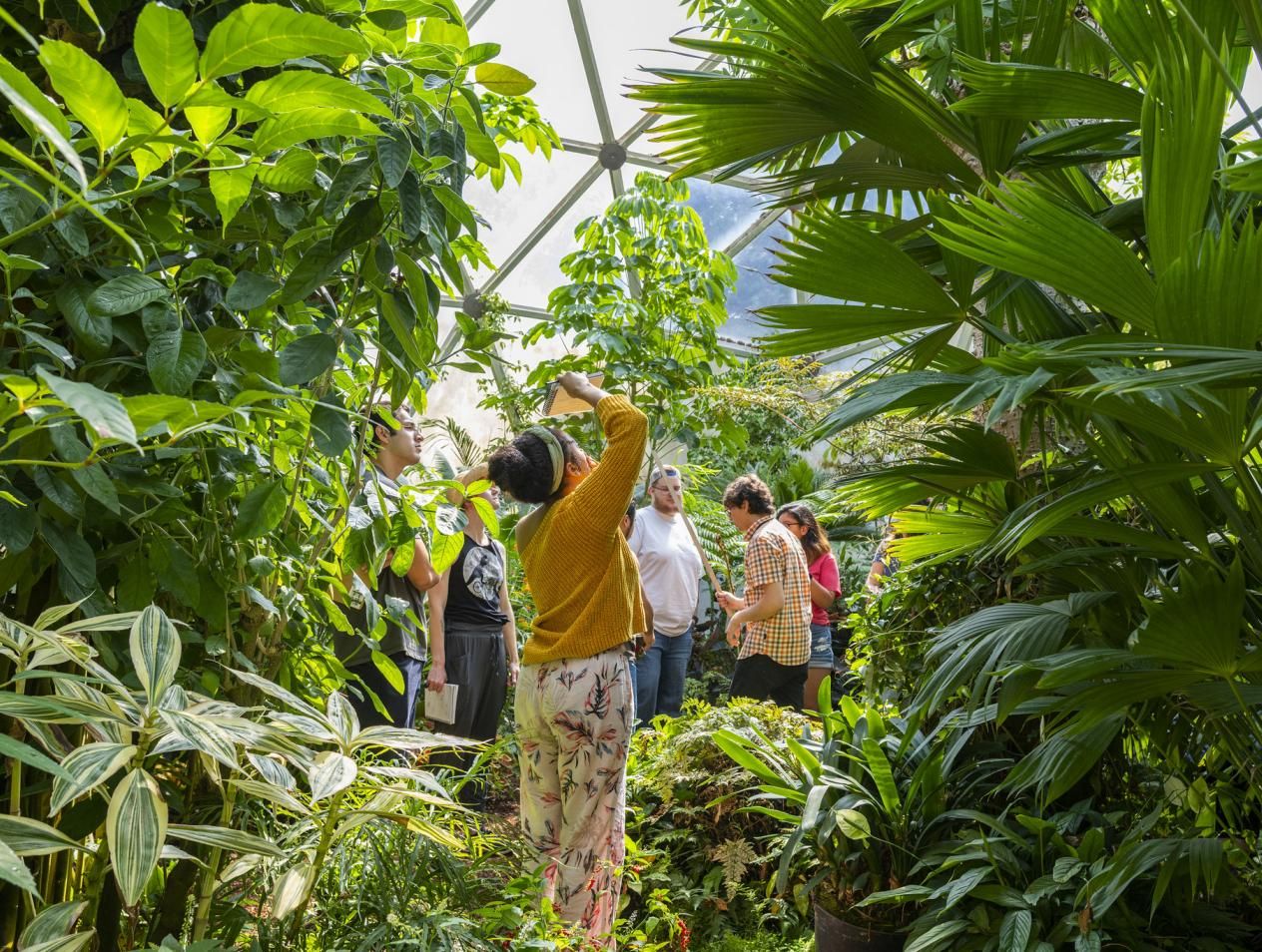Breadcrumb
Achievements
Find out what our students, faculty, and staff are being recognized for.
Jordyn Neal, Sam Rodrigues, Allison Bronson
Biological Sciences
Undergraduate alumna Jordyn Neal (now an M.S. candidate at CSU Fullerton) & Assistant Professor Allison Bronson had their recent publication in the Anatomical Record featured as the journal's "Editor's Choice" article for May 2025. The publication described inner ear shape in four species of sharks, part of a team effort including undergraduate alumna Samantha Rodrigues and data scientist John Denton. The Editor's Choice interview with Neal & Bronson is available through the American Association for Anatomy website.
Pedro Peloso
Biological Sciences
Dr. Pedro Peloso co-authored a publication with colleagues from multiple institutions focused on the evolutionary history and biogeography of the largest genus of Treefrogs in the Americas (Dendropsophus). They also assessed the evolution of egg deposition mode (aquatic vs. terrestrial). The paper was published in the journal Molecular Phylogenetics and Evolution.
Whitcher, C., Orrico, V. G. D., Ron, S., Lyra, M. L., Cassini, C. S., Ferreira, R. B., Nakamura, D. Y. M., Peloso, P., Rada, M. A., Rivera-Correa, M., Sturaro, M. J., Valdujo, P. H., Haddad, C. F. B., Grant, T., Faivovich, J., Lemmon, A., and Lemmon, E. M. "Phylogenetics, Biogeography, and Life History Evolution in the Broadly Distributed Treefrog Genus Dendropsophus (Anura: Hylidae: Hylinae)." Molecular Phylogenetics and Evolution 204 (2025): 108275. https://doi.org/10.1016/j.ympev.2024.108275.
Kendall Pargot
Biological Sciences
Kendall Pargot, Master's student in Biology (advisor Karen Kiemnec-Tyburczy) was awarded a conservation grant from the Northern California Herpetological Society to support her thesis research. The funds will be used to purchase cameras to record the nocturnal behavior of salamanders.
Silvia Pavan and Pedro Peloso
Biological Sciences
Drs. Silvia Pavan and Pedro Peloso received a National Science Foundation grant to study the origin and evolutionary history of vertebrates inhabiting different landscapes on Marajó Island, the world's largest fluvial island, in eastern Amazonia. The project will involve field sampling on the island, and the acquisition of genomic data for samples from across mainland eastern Amazonia basin. Data will also be gathered from historical material available at natural history museums. Study findings will elucidate how and when vertebrate species colonized the Marajó island from the mainland, and how their populations are currently structured among different landscapes within the island.
Jordyn Neal, Sam Rodrigues, Allison Bronson
Biological Sciences
Recent Marine Biology alumni Jordyn Neal and Sam Rodrigues, with help from Assistant Professor Allison Bronson, co-authored a paper on the inner ear anatomy of sharks, published in the journal The Anatomical Record. Jordyn and Sam reconstructed the inner ear spaces within shark skulls using the on-campus CT scanning facility. This work, especially in the context of relatively sparse prior studies on these structures, serves as a strong baseline for future comparative anatomy research on the hearing and equilibrium apparatus of cartilaginous fishes.
Allison Bronson
Biological Sciences
Dr. Allison Bronson received a National Science Foundation grant to study the inner ear structures of sharks, using CT scanning and Magnetic Resonance Imaging (MRI). This work will evaluate whether ear shape differs between shark species living in different habitats, potentially developing a predictive model for inferring the ecology of extinct fishes. The project involves collaborators at the University of Michigan, University of North Carolina WIlmington, University of Birmingham, and University of Auckland, and will use specimens from Cal Poly Humboldt’s Fish Collection and other museums throughout the United States.
Rachael Wade
Biological Sciences
Dr. Rachael Wade received a 2024 Norma J. Lang Fellowship award from the Phycological Society of America. The award supports genome sequencing of the red alga, C. berteroi. While algal species tend to assume restricted ranges, C. berteroi is widespread and can be found across nearshore environments in the Atlantic and Pacific Oceans. Dr. Wade’s work will explore this cosmopolitanism, and data from the study will later be used to reconstruct the species’ ancestral range, and identify adaptive traits that have facilitated its distribution. Understanding drivers of cosmopolitanism can increase understanding of algal adaptation in the face of climate change.
Rachael Wade
Biological Sciences
Dr. Rachael Wade received a 2024 Norma J. Lang Fellowship award from the Phycological Society of America. The award supports genome sequencing of the red alga, C. berteroi. While algal species tend to assume restricted ranges, C. berteroi is widespread, and can be found across nearshore environments in the Atlantic and Pacific Oceans. Dr. Wade’s work will explore this cosmopolitanism, and data from the study will later be used to reconstruct the species’ ancestral range, and identify adaptive traits that have facilitated its’ distribution. Understanding drivers of cosmopolitanism can increase understanding of algal adaptation in the face of climate change.
Oscar M. Vargas-Hernandez
Biological Sciences
Dr. Oscar Vargas and collaborators have published a new scientific article "Towards a Monophyletic Infrageneric Circumscription of Adesmia DC. (Dalbergieae, Leguminosae): a Taxonomic Revision in Adesmia series Adesmia" in the journal Phytotaxa. https://phytotaxa.mapress.com/pt/article/view/phytotaxa.639.1.1
Oscar M. Vargas-Hernandez
Biological Sciences
NSF has awarded a grant to Dr. Oscar Vargas to study the origin and genetics of rare plants in California. The grant includes funds for supporting a diverse students from participate in the project, and it aims to study four rare plants in the state. https://www.nsf.gov/awardsearch/showAward?AWD_ID=2334849






